Coucou everyone! Today I want to talk about the 13 key French phrases you should know if you plan on visiting Paris, and how to pronounce them.
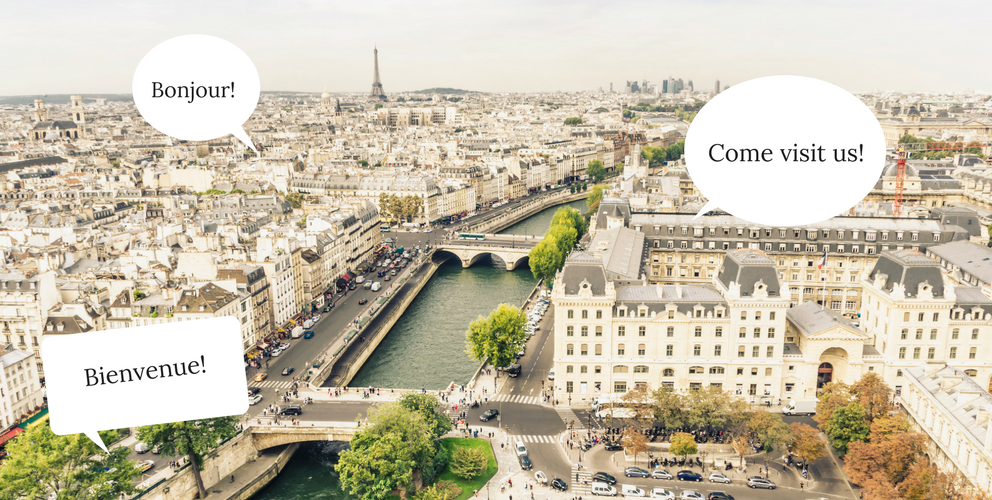
I love France and I want every single American who visits this beautiful country to have a positive experience. While I strongly disagree with the stereotype that the French dislike Americans, I will admit that a guaranteed way to make a bad impression when visiting France (or any country) is by not making an effort to learn the language.
No one is expecting you to say everything perfectly, but showing you’re willing to try goes a long way in their books!
To get you started, here are 13 French phrases that will help you communicate in France. I have included pronunciations for each below but I want to include a disclaimer: My French is not perfect and I know this.
My goal is not to pretend to be a French teacher, but rather to be an internet friend who can help you get by while visiting Paris. ☺
So, allons-y!
Bonjour
Which means: Hello!
Bonjour literally translates to “Good Day” so while you can use it as your standard greeting, it’s best suited in the day time.
This is probably the most known French word among Americans but unfortunately it’s also one of the most mispronounced. You don’t want to say “bawn-jOR”, unless you want every French person within a 10 foot radius to cringe.
Here is a clip of me demonstrating the wrong ways to pronounce bonjour, and then I’ll show you how to say it the correct way. ☺
Bonne Journée
Which means: Have a good day.
You should say this when leaving a place in the daytime, just like you would say “have a good day” in English.
Here’s how to pronounce it correctly:
Au Revoir
Which means: Good Bye
Bonsoir
Which means: Good Evening
Bonsoir is like the night version of Bonjour. You will use it in the exact same circumstances as you would Bonjour, except only when it’s the evening.
Here’s how to pronounce it:
Bonne soirée
Just like bonne journée means “have a good day” and is used when exiting, bonne soirée means “have a good evening” and is used in the same fashion.
Here is how to pronounce it:
Note: For some reason a lot of non-French speakers will say “bonne nuit” in this situation, which is incorrect. You would never say bonne nuit when leaving a shop or restaurant because it means “goodnight,” as in you are going to sleep.
You would instead say bon soirée.
Merci
Which of course means: Thank You.
Everyone knows merci, but few people pronounce it correctly.
I’m sorry dear friends and family, I love you all so much, but most of you absolutely butcher the word merci. But I am here to help!
You don’t want to say “mercy”, like Lord have mercy. And you also don’t want to say MARE-ci, like the beginning of the word Mary + see.
I realize this word can be tough because the French R is nearly impossible for non-French speakers, but you can get close enough just be switching your pronunciation a bit.
Here is me showing the wrong ways to pronounce merci, and the correct way.
Pardon
This is word is especially important to learn if you’re visiting Paris: Pardon is what you say when you bump into someone on accident.
It’s used in the same way we would say sorry or oops when navigating in public.
The pronunciation of pardon is quite different from the English pardon, so make sure to give this clip a quick listen so you can hear the difference.
Note: For some reason, many visitors will say “excusez-moi” instead of pardon which technically works but isn’t how the French do it.
Saying “excusez-moi” can have a more formal/harsh connotation behind it, and I know that’s not how you want to come off when apologizing for bumping into someone!
(Of course if you’re trying to squeeze past someone or are tapping someone on the shoulder, “excusez-moi” works perfectly in those scenarios).
S’il vous plait
I know you know what this one means… Please!
The French take manners very seriously, so feel free to use s’il vous plait sincerely and often.
When asking for help or directions, ordering food, or speaking to literally anyone, open your request with s’il vous plait and I guarantee you will have a better experience in France.
Here’s the wrong way to pronounce s’il vous plait, and the correct:
DÉSOLÉ, JE PARLE PAS FRANÇAIS!
Here’s an important one you will definitely want to know: Sorry, I don’t speak French!
If you find yourself in a tough spot, there is no shame in saying “hey man, I know I pronounced bonjour like a professional Parisienne, but I actually have no idea how to speak French!”☺ In fact, they will respect you for admitting it and will probably be pumped to practice their English.
Note: You will notice I left out the “ne” before parle, which is not the correct formation of this sentence. This is because it is very common in conversational French to drop the “ne”…and I’m operating under the assumption that you still want to sound super French, even when admitting you can’t speak the language. *wink*
Here’s how to pronounce it:
C’EST GENTIL
Which means: That’s Nice, or That’s Very Nice of You.
I’m including this one because I didn’t know how to express this sentiment until I arrived in Paris, and now I use it all the time.
C’est gentil is used when a stranger does something small but kind for you, like give up their seat on the train for you, or pick up something that you dropped.
Here’s how to pronounce it:
*Note: you don’t pronounce the L
L’addition, S’Il vous plait
Which means: The check, please!
Here’s how to pronounce it:
PS. While on the topic of dining I want to make a quick side note: Never, ever, ever, ever, EVER say “garçon” in a restaurant in France. It is one of the most insulting things you can say. Thanks ☺
Je prends un verre de vin
Last but not least, a phrase you will definitely need to know: How To Order Wine!
There’s two ways to order a glass of wine in French and I will teach you both. It’s a matter of preference and what you’re comfortable with saying because both work just fine.
- Je prends un verre de vin, which literally translates to “I will take a glass of wine.”
- Je voudrais un verre de vin, which translates to “I would like a glass of wine.”
Of course you would replace the word “vin” with the name of the wine you’re ordering, but I don’t need to tell you that.
Here’s how to pronounce both:
—
And there you have it! The 13 French Phrases that will help you walk around Paris like a true Parisienne.
What are some key phrases everyone should know in your country?
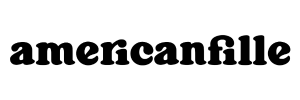
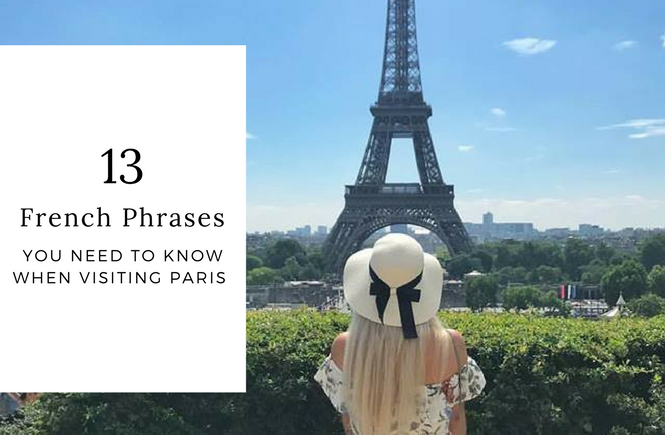
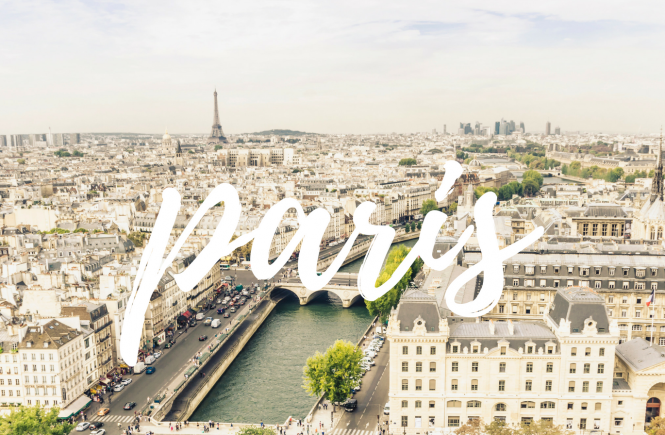

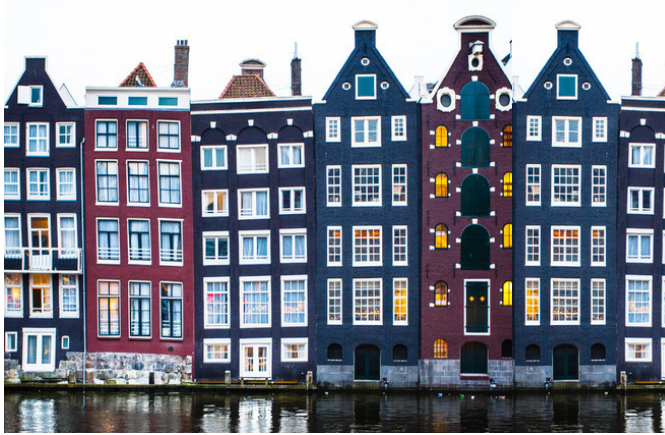
4 Comments
This has been very informative! Thanks so much and look forward to more posts!
Aw thank you, I’m glad you liked it!
So helpful! Can’t wait to go back to France!
Thank you for your support! 🙂